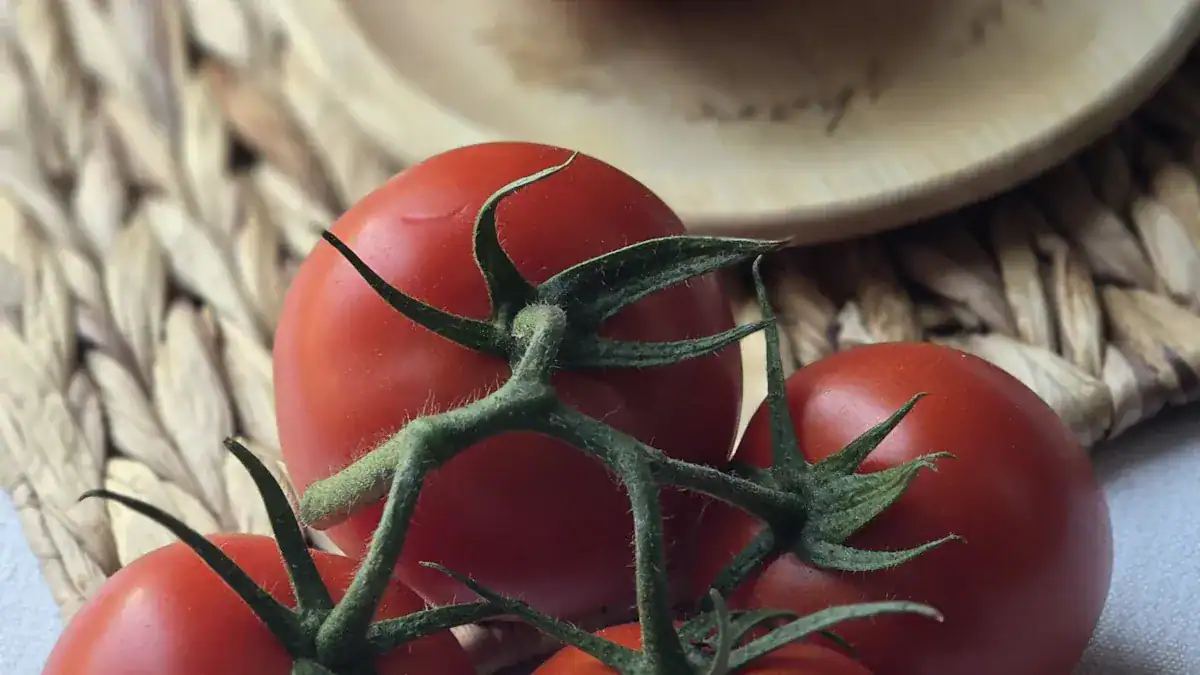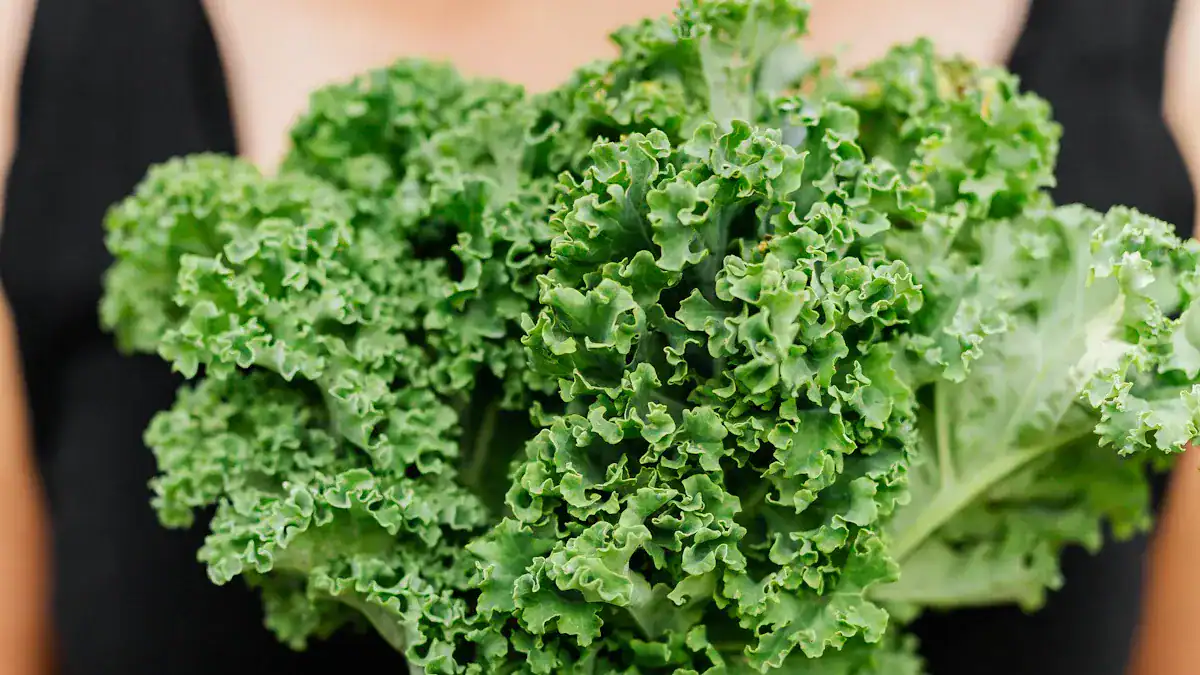
Natural blood thinners are foods or herbs that can help reduce your blood’s clotting ability. You must understand that these natural options are not a replacement for prescribed medication. Always consult your doctor before making any dietary changes.
Managing blood clotting is vital for conditions like deep vein thrombosis (DVT) or pulmonary embolism (PE). These conditions involve dangerous blood clots. This post will explore eight powerful natural blood thinners and provide crucial safety information.
Key Takeaways
Natural blood thinners are foods and herbs. They help stop blood clots. They are not a replacement for doctor-prescribed medicine.
Many foods and herbs can thin your blood. Examples include turmeric, ginger, garlic, and omega-3s. Each works in a different way.
Always talk to your doctor before using natural blood thinners. This is very important if you take other medicines. Some natural thinners can cause bleeding or bad reactions.
Lifestyle choices also help your blood. Drink enough water. Exercise regularly. Eat a balanced diet. These actions keep your blood healthy.
Blood-Thinning Foods
What Are Blood Thinners
Natural blood thinners, often found in blood-thinning foods, are substances that help reduce your blood’s ability to form clots. You might hear them called anticoagulants or antiplatelet agents. These substances are important because they help maintain smooth blood flow throughout your body. When your blood flows freely, it lowers the risk of dangerous blood clots.
How Blood Thinners Work
Your blood forms clots through a complex process. This process involves various proteins and tiny cell fragments called platelets. Natural blood thinners work in different ways to interrupt this process.
For example, turmeric contains curcumin. Curcumin inhibits parts of the coagulation cascade, which helps prevent clot formation. Ginger and cayenne peppers contain salicylates. These compounds may help prevent blood clotting, similar to how aspirin works.
Cinnamon has coumarin, a powerful compound with anticoagulant properties. Vitamin E is also known to be a mild anticoagulant. These substances possess blood-thinning properties, helping to reduce blood clotting and keep your blood flowing smoothly.
Antiplatelet vs. Anticoagulant
It is important to understand that blood thinners work in two main ways. Both antiplatelet and anticoagulant medications reduce the risk of blood clots, but they achieve this through different methods.
Anticoagulants slow down your body’s blood clotting process. They reduce the formation of fibrin, a protein essential for clot structure. This action prevents clots from forming and growing.
Antiplatelet medicines stop platelets from sticking together. Platelets are small blood cells that clump together to form a plug when you get a cut. By preventing this clumping, antiplatelet agents also stop blood clots from forming and growing.
Both types are crucial for maintaining healthy blood flow and preventing serious health issues.
8 Natural Blood Thinners

You can find many natural blood thinners in your kitchen or local health store. These natural remedies offer potential benefits for your blood health. Always remember to discuss these options with your doctor, especially if you take prescription blood-thinning products.
Turmeric Benefits
Turmeric is a vibrant yellow spice. It is a well-known natural blood-thinning agent. Its main active compound is curcumin. Curcumin gives turmeric its color and many health benefits. This polyphenol shows strong anticoagulant properties. Research indicates curcumin’s effects are superior to its derivative, bisdemethoxycurcumin (BDMC). This suggests curcumin’s structure helps its anticoagulant function. BDMC also has anticoagulant activities, but to a lesser degree.
Key Benefits: Turmeric helps reduce inflammation. It also acts as an antioxidant. These actions support overall cardiovascular health.
How to add to diet: You can add turmeric to curries, soups, and smoothies. You can also take it as a supplement. Look for supplements standardized for curcumin content.
Important Note: Turmeric can increase the risk of bleeding. This is especially true if you take blood-thinning medications like warfarin. Always talk to your doctor before using turmeric supplements.
Ginger’s Role
Ginger is a popular spice and a powerful natural remedy. It contains compounds that can help thin your blood. Gingerol is a key active component. It inhibits cyclo-oxygenase-1 (COX-1) activity. This action helps prevent platelets from clumping together. Studies show gingerol is more potent than aspirin in inhibiting COX-1. Scientists have identified 29 compounds in ginger. Many of these compounds show antiplatelet aggregation properties. They work against substances like arachidonic acid and collagen.
Key Benefits: Ginger helps reduce inflammation. It also aids digestion. It can ease nausea.
How to add to diet: You can use fresh ginger in teas, stir-fries, and baked goods. Dried ginger powder works well in many recipes. Ginger supplements are also available.
Important Note: Ginger may increase bleeding risk. This is a concern if you are on anticoagulant medications. Consult your healthcare provider before adding large amounts of ginger or ginger supplements to your diet.
Garlic’s Effects
Garlic is a common ingredient in many cuisines. It also has a long history as a medicinal herb. Garlic contains sulfur compounds, like allicin. These compounds may help reduce blood clotting. A review of 10 trials looked at garlic’s effect on thrombotic risk. Results on plasma viscosity were mixed.
However, the review noted modest but significant decreases in platelet aggregation with garlic compared to a placebo. This suggests garlic can help prevent blood clots.
Key Benefits: Garlic supports heart health. It also boosts your immune system.
How to add to diet: Use fresh garlic in your cooking. You can also find garlic supplements.
Important Note: Garlic can slow blood clotting. Stop using garlic supplements at least two weeks before any surgery. Discuss garlic intake with your doctor if you take blood thinners.
Cayenne Pepper
Cayenne pepper gets its heat from capsaicin. Capsaicin is the primary phytochemical in peppers. It has a history of traditional use for circulatory health. This includes preventing blood clots in various cultures. Laboratory studies suggest capsaicin may have antiplatelet effects.
It could reduce platelet aggregation. Animal studies indicate it might influence blood coagulation factors. Capsaicin activates TRPV1 receptors in your body. This activation impacts vascular health. It increases beneficial proteins and decreases pro-inflammatory ones. Hot peppers contain capsaicin along with dihydrocapsaicin and nordihydrocapsaicin. These compounds activate TRPV1 similarly.
Key Benefits: Cayenne pepper may improve blood flow. It can also help reduce pain.
How to add to diet: You can sprinkle cayenne pepper on your food. It adds a spicy kick to many dishes. You can also find it in supplement form.
Important Note: High doses of cayenne pepper can be risky. They can increase heart rate and blood pressure. They may also cause coronary vasospasm. Improper use has links to heart issues. High doses can interfere with blood-thinning medications.
These include warfarin, aspirin, and ibuprofen. Excessive amounts can also irritate your stomach lining. This can lead to gastritis or ulcers. Always use cayenne pepper in moderation. Talk to your doctor about its use, especially if you have heart conditions or take medications.
Cinnamon Properties
Cinnamon is a fragrant spice. It contains compounds that can affect blood clotting. Cinnamaldehyde (CA) is one such compound. CA inhibits platelet aggregation. This means it stops platelets from clumping together. Studies show CA reduces collagen-induced platelet aggregation.
This happens in both lab settings and in living organisms. Its antithrombotic properties link to this ability to prevent platelet aggregation. Cinnamon also contains coumarin, a powerful compound with anticoagulant properties.
Key Benefits: Cinnamon helps regulate blood sugar. It also has antioxidant properties.
How to add to diet: Add cinnamon to oatmeal, coffee, or baked goods. You can also drink cinnamon tea.
Important Note: There are different types of cinnamon. Cassia cinnamon contains high levels of coumarin. Coumarin can cause liver damage in large amounts. Ceylon cinnamon is a much safer option for regular consumption. It has very low coumarin levels.
Cinnamon Type | Coumarin Level (Typical Range) |
|---|---|
Ceylon Cinnamon | Very Low (0.004% – 0.02%) |
Chinese Cinnamon (Cassia) | High (1% – 5%) |
Cassia cinnamon can contain about 1% coumarin. Ceylon cinnamon contains only 0.004% coumarin. This is 250 times less. Always choose Ceylon cinnamon if you consume it regularly.
Vitamin E Sources
Vitamin E is a fat-soluble vitamin. It acts as a mild anticoagulant. Alpha-tocopherol (α-tocopherol) is the specific form of Vitamin E that shows anticoagulant properties. It functions as an antioxidant. It neutralizes free radicals that can harm cells. It also supports immune function. It helps prevent the formation of blood clots in heart arteries.
Key Benefits: Vitamin E protects your cells from damage. It supports your immune system.
How to add to diet: You can get Vitamin E from many foods.
Seeds: Sunflower seeds are an excellent source.
Nuts: Almonds are also an excellent source.
Oils: Wheat germ oil is very rich in Vitamin E. One tablespoon provides 20 milligrams, which is 135% of your daily value.
Vegetables: Red sweet peppers, turnip greens, beet greens, spinach, and butternut squash.
Fruits: Mamey sapote, avocado, and mango.
Other: Fish and egg yolks.
Important Note: High doses of supplemental alpha-tocopherol can increase bleeding risk. This is especially true if you take anticoagulant drugs. It can also interfere with vitamin K absorption. Always consult your doctor before taking Vitamin E supplements.
Omega-3 Benefits
Omega-3 fatty acids are essential fats. Your body cannot make them. You must get them from your diet. Eicosapentaenoic acid (EPA) and docosahexaenoic acid (DHA) are two important types of omega-3s. They help reduce inflammation and may decrease platelet aggregation. This makes them effective natural blood thinners.
Key Benefits: Omega-3s support heart and brain health. They also reduce inflammation throughout your body.
How to add to diet: Fatty fish like salmon, mackerel, and sardines are rich in omega-3s. Flaxseeds and chia seeds also contain omega-3s. Fish oil supplements are a common way to increase your intake.
Recommended Intake: Cardiac societies suggest 1 gram of EPA and DHA daily for cardiovascular disease prevention. For lowering high triglycerides, 2 to 4 grams per day are often suggested. About 3 grams daily may be optimal for lowering blood pressure. Individuals with high blood pressure might see greater benefits with 3-5 grams daily.
Important Note: High doses of omega-3s can increase bleeding risk. This is particularly true if you take other blood-thinning products. Discuss appropriate dosages with your doctor.
Ginkgo Biloba
Ginkgo Biloba is an ancient tree. Its leaves are used in traditional medicine. Extracts from Ginkgo Biloba can improve blood flow. They may also have blood-thinning properties.
Compounds like ginkgolides and bilobalide contribute to these effects. Ginkgolides A-C and bilobalide relax pre-contracted blood vessels. Ginkgolide B is a potent diterpene. It significantly contributes to these vasorelaxant effects.
Compound | Effect on Blood Flow (Vasorelaxant Activity) |
|---|---|
Bilobalide | Relaxed NE-precontracted intact vessels in rat aorta studies. |
Ginkgolides A-C | Relaxed NE-precontracted intact vessels in rat aorta studies. |
Ginkgolide B | Most potent diterpene for biological activity, contributing to vasorelaxant effects. |
Key Benefits: Ginkgo Biloba may improve cognitive function. It also supports circulation.
How to add to diet: Ginkgo Biloba is typically taken as a supplement.
Important Note: Ginkgo Biloba slows blood clotting. It can significantly increase the risk of bleeding. This risk is higher when taken with other anticoagulant medications. These include warfarin or aspirin. There are documented cases of spontaneous bleeding. One man experienced eye bleeding while taking ginkgo with a low dose of aspirin. A young woman had serious brain bleeding after prolonged ginkgo use, even without other blood thinners. Always consult your doctor before taking Ginkgo Biloba. It is one of the natural remedies that requires careful medical supervision.
Many natural remedies, like those discussed, can support your health. However, remember that ginseng is another herb sometimes considered for blood health. Always prioritize medical advice for any health concerns.
Safety and Risks

Potential Side Effects
You might think natural options are always safe. However, even some natural substances can have side effects. The main concern with any substance that thins your blood is an increased risk of bleeding. This can range from minor issues like easy bruising to more serious internal bleeding. You need to be aware of these possibilities.
When to Avoid Them
You must be very careful with natural blood-thinning products before any medical procedure. Upcoming surgeries are a big reason to stop using these substances. They can increase your bleeding risk or interfere with anesthesia. This can lead to problems.
For example, pause supplements like CBD oil, garlic, ginkgo, ginseng, and vitamin E before surgery. These all increase bleeding risk. Echinacea can harm your liver. Ephedra can cause high blood pressure. Kava, St. John’s wort, and valerian can prolong anesthesia effects. Always tell your healthcare providers about all supplements you take. This helps prevent blood clots from forming dangerously.
Lifestyle for Blood Health
You can do more than just eat specific foods to support your blood health. Your daily habits play a big role. These lifestyle choices work with natural remedies to keep your blood flowing well.
Hydration Importance
Drinking enough water is very important for your blood. Adequate hydration keeps your blood plasma volume at a good level. This makes your blood thinner and less sticky. When your blood is thinner, it flows easily through your arteries and veins.
This reduces the workload on your heart. It also helps your circulation work better. If you do not drink enough water, your blood plasma volume drops. Your blood becomes thicker and more viscous. This makes it harder for your heart to pump. It also increases resistance in your blood vessels. This can strain your cardiovascular system.
It also raises the risk of blood clots and high blood pressure. Proper hydration helps maintain electrolyte balance. This balance is key for regulating blood viscosity. It helps your heart pump efficiently and keeps your blood pressure stable.
Exercise Benefits
Physical activity is great for your overall health. It also helps your blood flow. Exercise improves how your blood vessels work. It helps with things like your body weight, blood pressure, and sugar levels. Exercise also reduces inflammation. These benefits lower your risk for vascular problems. They can also help prevent blood clots. You can do simple exercises to boost blood flow.
Ankle circles: Roll your ankles clockwise and counterclockwise. This helps blood flow to your feet.
Knee lifts: Lift one knee to your chest, then switch legs. Do this 20-30 times for each leg.
Shoulder rolls: Move your shoulders in circles for 30 seconds. This helps your upper body circulation.
Calf muscle exercises: While sitting, raise and lower your heels. Then raise and lower your toes.
Balanced Diet Impact
Eating a balanced diet supports your heart health. It works with other natural remedies to keep your body strong. A diet rich in fruits, vegetables, and whole grains provides essential nutrients. These nutrients help your body function well. They also support healthy blood circulation. This approach helps you maintain good health.
You have explored several natural blood thinners, including turmeric, ginger, and garlic. These natural remedies can help reduce clotting. Remember, these natural approaches are not a substitute for professional medical care. Doctors may suggest natural blood thinners as an addition to your existing medications. Always consult your healthcare professional before adding any new foods or herbs. This is especially important if you take other medications or have health conditions. You can make informed health choices with your doctor’s guidance.



